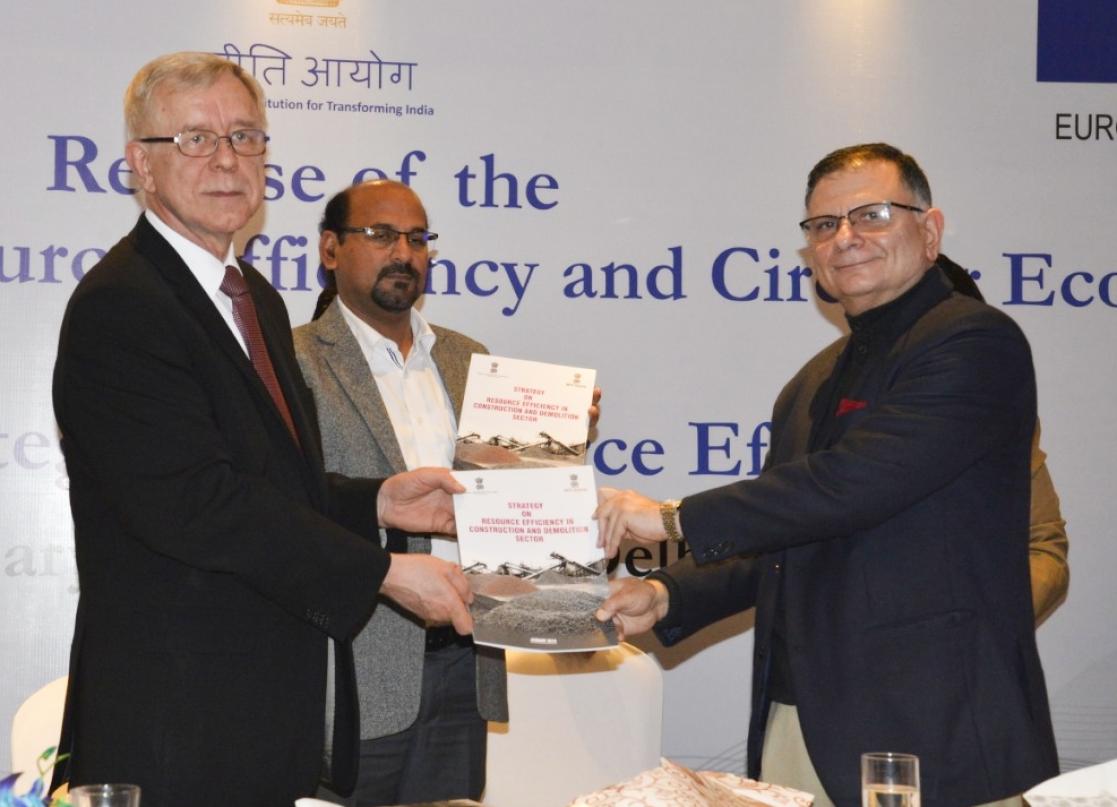NITI Aayog pitches for transition to Resource Efficiency and Circular Economy as an Economic Paradigm for New India

Ratan P Watal in his keynote address dwelt on the rationale for Resource Efficiency & Circular Economy. He further mentioned that the objective of the RE Strategy was to make recommendations for enhancing resource-use efficiency in the Indian economy and industry, develop indicators for monitoring progress, and create an ecosystem for improving resource security and minimizing environmental impacts. NITI had undertaken the role of a facilitator to mainstream approaches and measures in the direction of resource efficient and circular Indian Economy. This was also in line with the Government’s commitment to the goals of sustainability.
The status paper on Resource Efficiency & Circular Economy brings out 30 recommendations out of which 14 recommendations have identified as priority actions.
Watal spelt out a few notable actions for transformation of RE Ecosystem in India. These are:
a. Formulation of a National Policy on RE/CE,
b. Establishment of Bureau of Resource Efficiency (BRE),
c. Mainstreaming RE&CE in existing flagship missions,
d. A Modern Recycling Industry with level playing between primary and secondary producers,
e. R&D for development of scalable technologies for RE & CE, and
f. Development and promotion of skill and capacity building programmes for informal sector.
Tomasz Kozlowski, Ambassador, European Union Delegation to India, mentioned that RE & CE are closely interlinked with climate change and it would not be possible to achieve the climate change target of limiting temperature increase to 2 degrees Celsius. He also informed that EU’s commitment to transform economy in to a more sustainable one in Europe and across the world to boost global competitiveness, foster sustainable economic growth and generate new jobs. As part of the ambitious 'Circular Economy Package', waste-management targets regarding reuse, recycling and land filling, strengthening provisions on waste prevention and extended producer responsibility has been adopted, which Member States are required to transpose the directives into national law by 5 July 2020. Circular Economy in the EU is expected to create savings of €600 billion for EU businesses, equivalent to 8% of their annual turnover, creation of an additional 580,000 jobs and reduction of carbon emissions by 450 million tonnes by 2030. He also reaffirmed the EU’s commitment and support for partnership with India on RE and CE.
Henriette Faergemann, EU Counsellor, Environment, Energy & Climate Change, mentioned about the opportunity in resource efficiency and circular economy to both EU and India to work together. She further informed that through the EU – Resource Efficiency Initiative, effective partnerships have been created at various level especially with NITI Aayog, MoEFCC, Nodal Ministries, State Governments, Civil Society and other partners for implementation of RE strategy. It was also mentioned that EU is extending support to the Resource Efficiency Cell at MoEFCC in preparation of a Resource Efficiency Policy for India.
